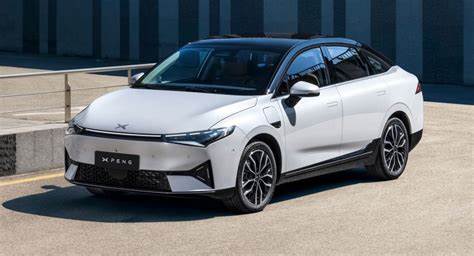Islamabad, Sep 26: The Biden administration has proposed a ban on Chinese connected-car technology, marking a significant move to counter the influx of inexpensive Chinese electric vehicles (EVs) that threaten to disrupt the global automotive market.
Announced the U.S. Commerce Department on September 23, this ban on hardware and software is part of a broader strategy that includes 100% tariffs on Chinese EVs and the denial of a $7,500 consumer EV subsidy for vehicles with Chinese components.
This prohibition will extend beyond vehicles manufactured in China, impacting those produced by Chinese firms in other countries, such as Mexico and Europe, where factories are planned.t.
Chinese EV leader BYD has plans to establish a plant in Mexico, though it asserts that it will serve only the local market. U.S. trade groups warn that Chinese EVs pose a significant threat to American automakers, potentially leading to an “extinction-level event.”
Additionally, the proposal aims to bar Chinese software and self-driving cars from testing or deployment in the U.S., effectively creating a trade barrier that could protect U.S. companies like Tesla, which is heavily invested in autonomous technology.
While analysts anticipate possible retaliation from China that could target Tesla’s operations, the Biden administration has framed the threat from Chinese vehicles and technology as a national-security concern, capable of enabling espionage and undermining economic security. U.S. officials have stressed the importance of closing loopholes that would allow Chinese automotive software to enter the market.
The proposed rules will prohibit the use of Chinese software in 2026 for 2027 model vehicles and hardware for the 2030 model year. The administration aims to finalize these regulations before President Biden’s term ends on January 20, 2025.
